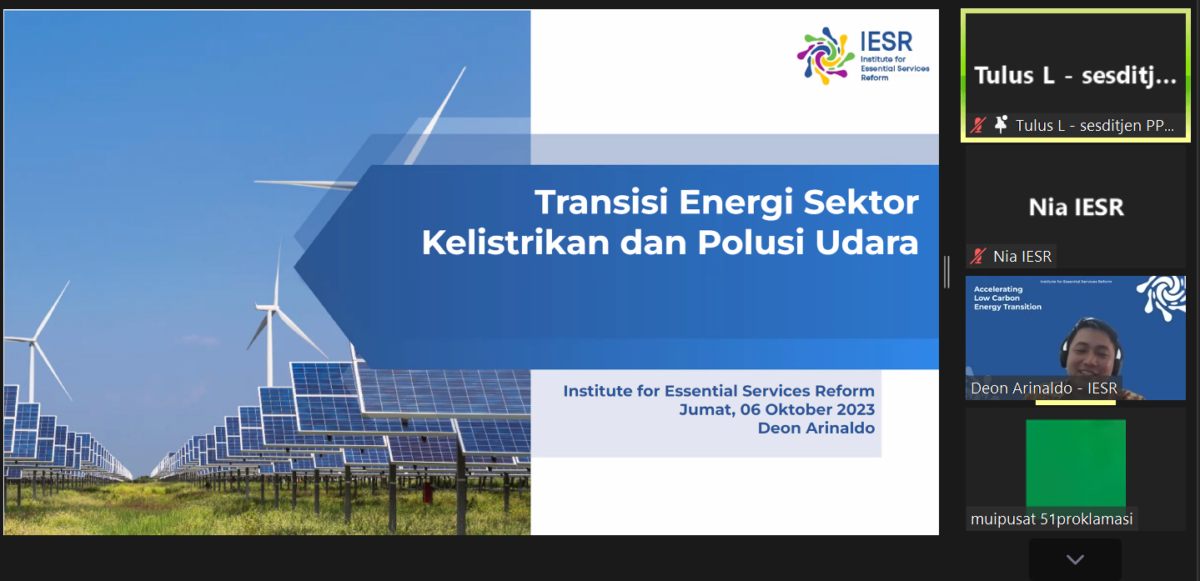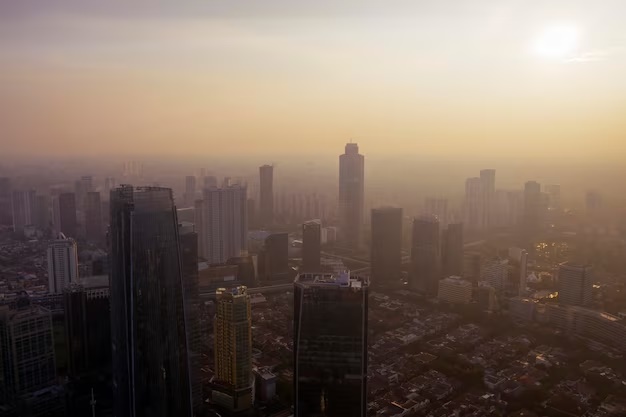The sky in the capital city is no longer blue. Smoke is the culprit of the haze that covers the beautiful landscape of Jakarta.
Read more on Bisnis.

Jakarta, October 6, 2023 - Air pollution has been a significant issue faced by the residents of Jakarta, Bogor, Depok, Tangerang, and Banten (collectively known as Jabodetabek) for quite some time now. These unfavorable circumstances require urgent attention and action because environmental pollution in Jakarta can portray Indonesia's development as harming the environment. Program Manager…

Jakarta, October 5, 2023 - Air pollution is a major environmental challenge society faces today. With increased industrial activity, population growth, and human mobility, air pollutants have drastically increased, causing severe impacts on human health and ecosystems. The Executive Director of the Institute for Essential Services Reform (IESR), Fabby Tumiwa, emphasized that air pollution is…
Cindy Silviana, 35, takes the TransJakarta Bus from her home to her office on a daily basis. She has been doing so for the past 20 years to avoid the cumbersome traffic and progressively worsening air pollution in the city. She also used to go for a morning walk before heading to work, but now…
Residents in the Jakarta, Bogor, Depok, Tangerang, and Bekasi (Jabodetabek) areas are urged to be vigilant about the dangers of pollution as it has the potential to cause various diseases. Jakarta itself has consistently been the most polluted city in the world recently due to the presence of coal-fired power plants and uncontrolled motor vehicle…
Artificial rain is considered less effective in addressing air pollution, according to the Institute for Essential Services Reform (IESR). The government previously initiated artificial rain in Jakarta on Sunday (8/28).
Read more on Kata Data.
The Ministry of Energy and Mineral Resources is working to increase the supply of high-octane fuel as a strategy to reduce air pollution in Jakarta, Bogor, Depok, Tangerang, and Bekasi (Jabodetabek)
Read more on Kata Data.
Executive Director of the Institute for Essential Services Reform (IESR), Fabby Tumiwa, stated that the air pollution issue in the capital of Indonesia, Jakarta, is not solely caused by motor vehicles and waste incineration. An important factor proven to play a significant role in this regard is the prevailing wind direction in this metropolitan area.
Read…
The use of electric vehicles continues to be echoed by the government, both central and regional, as a way to reduce air pollution which is getting worse. However, observers said it "will not solve the problem" and called electrification a "false solution".
Read more on BBC.

Air pollution remains a problem in various regions. Although awareness of air pollution has increased, the urgency to find a solution has yet to become a priority. The impact is significant for everyone, including children as the most vulnerable group.
Co-founder of Nafas, Piotr Jakubowski, explained air pollution is significantly higher in the dry season…
